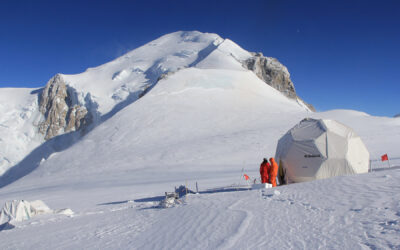Reno, Nev. (Nov. 15, 2018) – The Southwest Climate Adaptation Science Center (SW CASC), a collaborative partnership between regional research institutions and the United States Geological Survey (USGS), recently received a five-year, $4.5 million grant from the USGS to renew support for the center’s research on climate science and adaption throughout the region.
The SW CASC was established in 2011 to provide objective scientific information and tools that land, water, wildlife, and cultural resource managers and other interested parties could apply to anticipate, monitor, and adapt to climate change impacts in the southwestern United States. Based at the University of Arizona, the SW CASC is a consortium that also includes the Desert Research Institute; University of California, Davis; University of California, Los Angeles; Scripps Institution of Oceanography at UC San Diego; Colorado State University; and Utah State University.
With its renewed funding, the SW CASC will build on its almost seven years of collaborative research and outreach. Over the next five years, SW CASC researchers are aiming to produce new scientific information alongside decision makers and managers to help make more informed planning decisions about the region’s highest priority issues, including the allocation of resources.
“We go beyond the routine of academic research, where the goal is to advance knowledge by publishing peer-reviewed papers,” said Stephen Jackson, USGS director of the SW CASC and adjunct professor of geosciences and natural resources and environment. “I like to call what we do ‘research plus,’ because we do that, plus create various products that are directly useful to managers.”
The Southwest is an ecologically varied region, with ecosystems including deserts, mountains, forests, and coasts, hosting some of the most iconic vegetation and wildlife in the U.S. Since it encompasses the hottest and driest region of the U.S., the Southwest faces a number of challenges associated with rising temperatures, including record low snowpack, increased flooding, and extreme wildfires. Land and resource managers at every level of government need up-to-date, accessible research on these topics to be prepared for changes and to anticipate future challenges.
“Through the SW CASC, we’re actively broadening the pool of scientists engaged in research related to climate adaptation in the Southwest in order to provide more information and resources to drive the decision-making process” said Tamara Wall, Ph.D., deputy director of the Western Regional Climate Center (WRCC) at DRI and a Principal Investigator for SW CASC.
SW CASC’s portfolio of scientific resources directly available to managers includes the SCENIC web application, developed by WRCC scientists. A searchable database of climate information about the Southwest dating back to 1980, the SCENIC app allows users to visualize and analyze historic data such as precipitation and temperature as well as climate projections.
According to Wall, DRI researchers will soon be launching a new and improved SCENIC 2.0 application that will feature an improved user interface, graphic outputs, and quicker information processing.
For more information on the SW CASC, please visit: https://www.swcasc.arizona.edu.
Emily Litvack of the University of Arizona Research, Discovery, & Innovation Office contributed to this release.
###
The Desert Research Institute (DRI) is a recognized world leader in basic and applied interdisciplinary research. Committed to scientific excellence and integrity, DRI faculty, students, and staff have developed scientific knowledge and innovative technologies in research projects around the globe. Since 1959, DRI’s research has advanced scientific knowledge, supported Nevada’s diversifying economy, provided science-based educational opportunities, and informed policy makers, business leaders, and community members. With campuses in Reno and Las Vegas, DRI serves as the non-profit research arm of the Nevada System of Higher Education.


